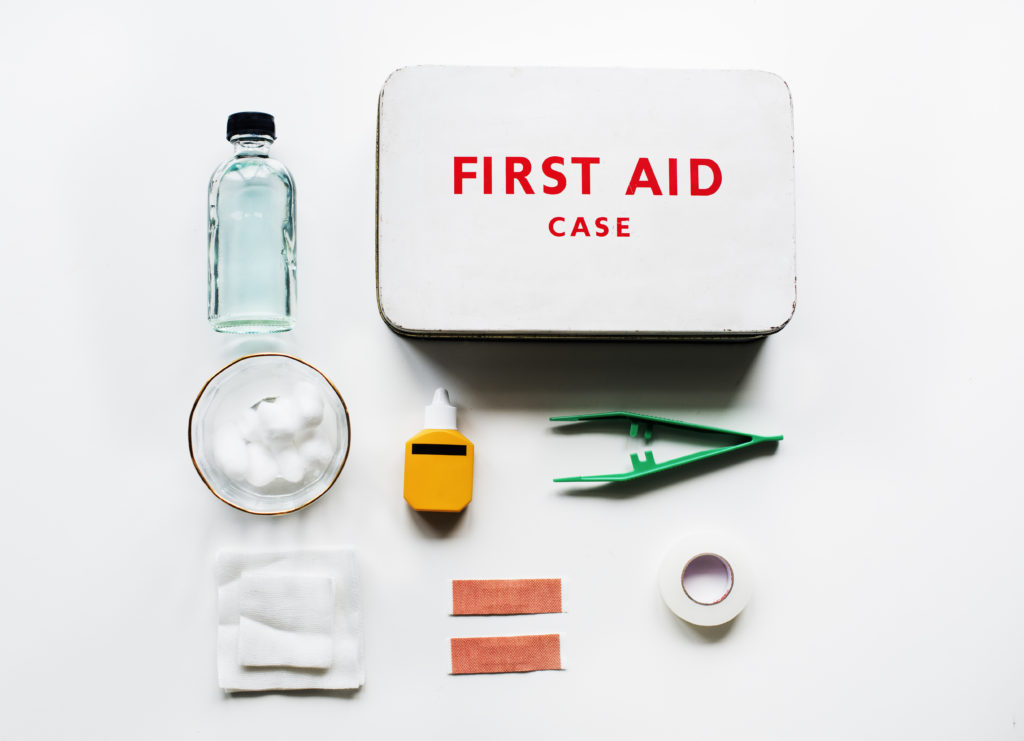Every pet parent should have a pet first aid kit in case of an emergency. Whether you keep one in a handy place at home or you have a portable kit to take on all your adventures (it’s a good idea to have both!), being prepared can literally mean the difference between life and death.
While there are lots of general items that should be in a first aid kit — gauze, tweezers, antibiotic ointment, etc. — people with four-legged family members should tailor their kits depending on where they live. For instance, Arizona is home to its fair share of poisonous critters and even plants. Therefore, local pet parents should take special care to pack poison prevention items. (With that said, dogs and cats toxic substances anywhere, so it’s always a good idea to have these items on hand.)
Further, many Arizonians have a love for the great outdoors. So if you and your pal are headed on a camping trip or hike, consider packing travel-sized versions of the items below so you’re ready if there’s ever a hostile encounter. (And in addition to your emergency kit, be sure to pack plenty of water!) With information gathered by the ASPCA, check out the essential items that every Arizona pet parent should have in their first aid kits.

- Rubber gloves to shield your skin from potentially toxic substances.
- Tweezers to remove splinters, stingers, lodged objects, etc.
- Gauze pads for wounds.
- Scissors with blunt end, so as not to further injure pet with sharp end.
- Adhesive tape to wrap gauze around wounds.
- Instant ice pack to reduce swelling.
- Antibiotic ointment to reduce the risk of infection.
- Alcoholic wipes to clean wounds.
- Cotton balls / swabs to help apply ointment or clean wounds.
- Styptic powder to help reduce bleeding.
- Flashlight to get a closer look at injury / assist with seeing in low light.
- Foil blanket to use the instance of hypothermia / shock
- Liquid dish soap to remove toxic substances from skin and coat. Remember to never use dishwasher detergent.
- Towels to dry off, clean, or wrap pet.
- Hydrogen peroxide to induce vomiting in case your pet ingests something dangerous. Always call your vet before giving this to your pet; in some situations, it can make things worse, plus they’ll advice you on the proper dosage. Also, it’s important to replace the bottle every six months to ensure it stays bubbly, otherwise it can be ineffective.
- Bulb syringe / turkey baster to administer hydrogen peroxide if needed.
- Canned dog or cat food can be eaten to dilute poison or to aid your pet in vomiting.
- Saline eye solution to flush substances from eyes.
- Names / numbers / addresses of local vet / emergency vet / poison control hotline. Even if these are programmed into your phone, a hard copy will be handy if you’re in an area with no cell service or you phone runs out of battery and you have to use someone else’s.

